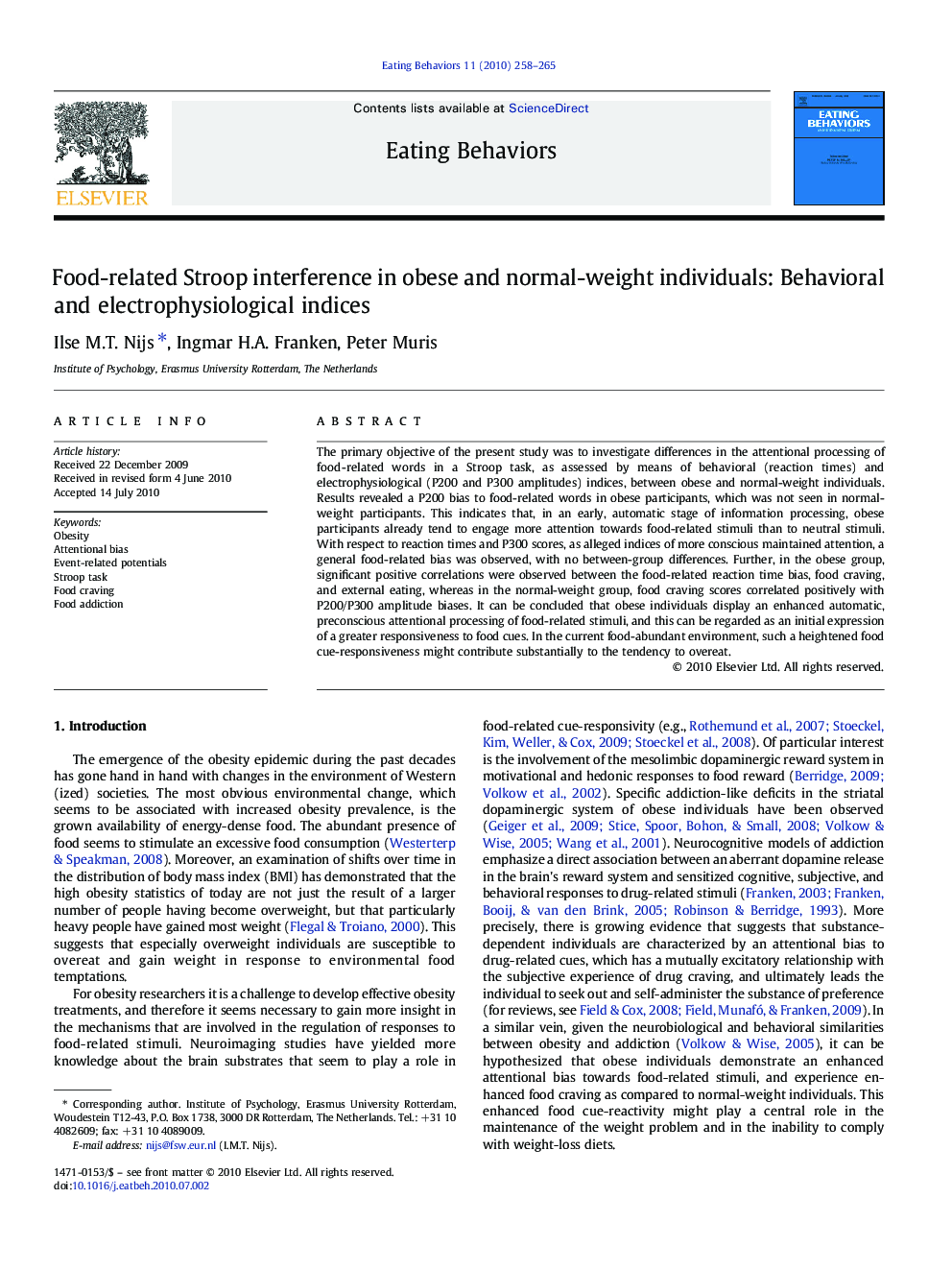| Article ID | Journal | Published Year | Pages | File Type |
|---|---|---|---|---|
| 906763 | Eating Behaviors | 2010 | 8 Pages |
The primary objective of the present study was to investigate differences in the attentional processing of food-related words in a Stroop task, as assessed by means of behavioral (reaction times) and electrophysiological (P200 and P300 amplitudes) indices, between obese and normal-weight individuals. Results revealed a P200 bias to food-related words in obese participants, which was not seen in normal-weight participants. This indicates that, in an early, automatic stage of information processing, obese participants already tend to engage more attention towards food-related stimuli than to neutral stimuli. With respect to reaction times and P300 scores, as alleged indices of more conscious maintained attention, a general food-related bias was observed, with no between-group differences. Further, in the obese group, significant positive correlations were observed between the food-related reaction time bias, food craving, and external eating, whereas in the normal-weight group, food craving scores correlated positively with P200/P300 amplitude biases. It can be concluded that obese individuals display an enhanced automatic, preconscious attentional processing of food-related stimuli, and this can be regarded as an initial expression of a greater responsiveness to food cues. In the current food-abundant environment, such a heightened food cue-responsiveness might contribute substantially to the tendency to overeat.
